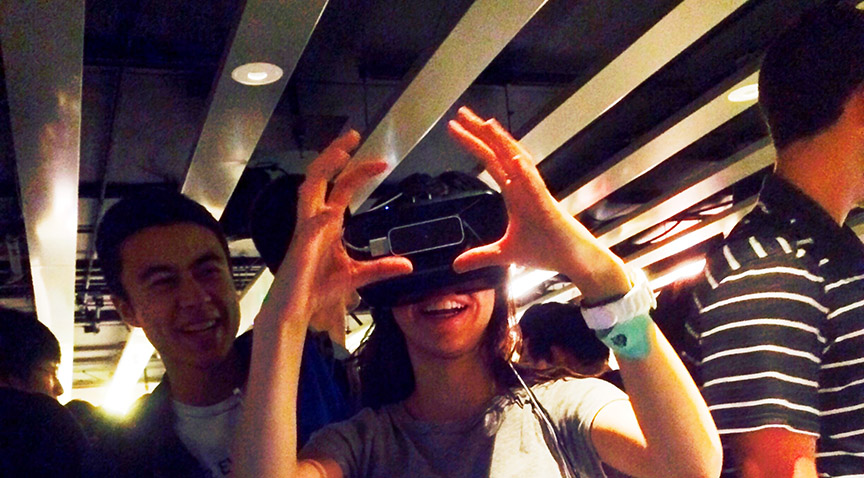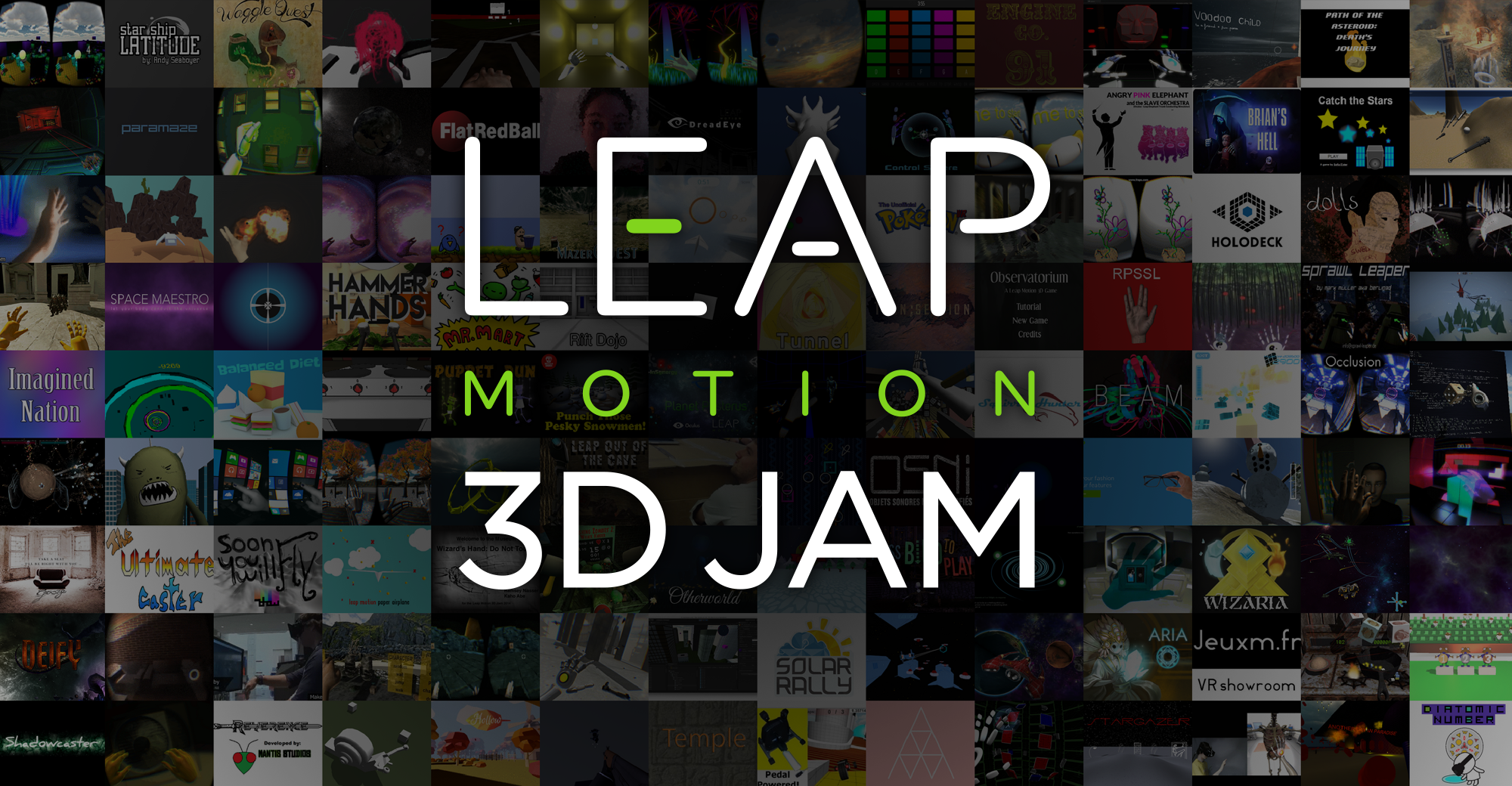Today we’re excited to announce the winners of the Leap Motion 3D Jam – but first, we have a special surprise for all our top 20 semi-finalists. It’s been an incredible competition, and we were really blown away by the high level of quality. As a result, we’ve decided to increase our prize pool! Now, each of the top 20 semi-finalists, along with three Honorable Mentions, will receive a cash prize.
// Education
We learned so much on the ground with our developer community in 2014. Translating soothing gestures into meditative brainwaves on EEGs. Springing drones to life. Navigating new ways of thinking about user interfaces in VR.
You’ve built incredible things this year, and along the way, we’ve based many of the experiments, resources, and examples found in the Developer Portal on your feedback and feature requests. We can’t wait to keep that conversation going in the New Year. And now, for a bit of inspiration, behold – our 2014 Shortlist of Virtual Superlatives:

It’s no secret that for many developers in our community, midnight is the hour when the hacking gets good. Late last Friday night, over 1,000 undergraduates from across the country poured into California Memorial Stadium for Cal Hacks, a 36-hour coding spree put on by Major League Hacking. Sponsors ranging from tech’s biggest players to […]
The Leap Motion Controller doesn’t exist in a vacuum. Across fiction, gaming, and art, we can see a rich history of motion control concepts and devices, and understanding what makes them successful is hugely important to building the next generation of real-world interfaces. In this two-part video, we look at some of the most compelling […]
Around the world, nearly 15,000 animal species are threatened with extinction. These are numbers that stagger the imagination, especially as more species routinely slip into total extinction, never to be seen again. But with digital media, it’s possible to hold huge quantities of data in the palm of your hand – and come to grips with the magnitude of the crisis.

There’s no denying the buzz around hackathons transforming computer science education, or technical education overall. Over the course of 24 hours (or a weekend) coders can join together in massive marathon sessions, playing with real-world code for fun and prizes. On the other hand, classes are often portrayed as the opposite extreme – slow, unexciting, overly focused on theory.
I have a recurring dream that starts as a nightmare but turns into something else altogether. Imagine the stage of a monumental concert hall. The auditorium is packed, and as the audience notices you, thousands of conversations turn into a deep, imposing silence that sends a chill down your spine. Spotlights on a majestic grand […]
By learning how to play an instrument, musicians have the power to channel beauty and emotion through their hands. This makes music theory a ripe playground for 3D motion control experiments. If learning to play a physical instrument is a matter of learning how that object works and building muscle memory, why can’t learning chord progressions happen the same way – but in the air?
We live in a heavily coded world – where the ability to talk to computers, and understand how they “think,” is more important than ever. At the same time, however, programming is rarely taught in schools.
What can virtual environments teach us about real-world issues? At last month’s ImagineRIT festival, Team Galacticod’s game Ripple took visitors into an interactive ocean to learn about threats facing coral reefs.

